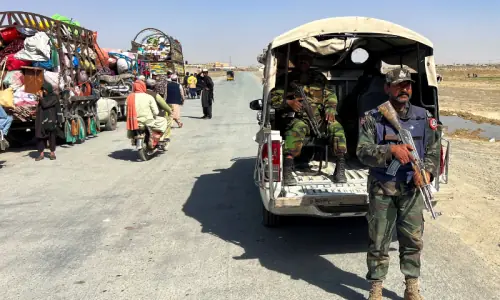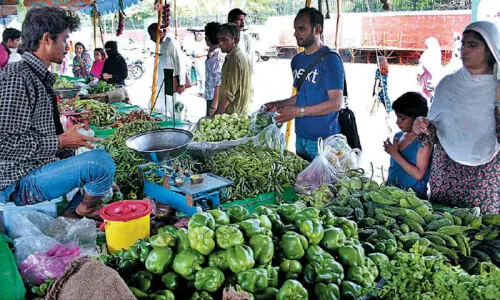Do you dread the pre-Eidul Azha period when there is cow dung at every step and drives to mandi are long and boring? Yeah, I guess I am one of the only ones; which bring me to the Qurbani App, a local startup from Islamabad that wants to change the landscape of livestock industry.
The startup is currently offerings three services: a marketplace where individual buyers and sellers can discover and market their cattle; Bara service that lets you keep your livestock at their farms; and Sadqa/Aqiqa animals and sacrifice at the convenience of your doorstep. The app also displays official stock from Qurbani’s partner farms.
How does it work? Download the app, register with your number and get going! You can choose between the services, such as Bara or Sadqa/Aqiqa, filter through the livestock category etc.
You can directly connect with the seller through an in-app chat portal or call, negotiate the price and close the deal. It’s pretty much like OLX, with the role of Qurbani App limited to only discovery while logistics and payments are handled by the parties involved. And the absence of latter means the inability to monetise on sales done through the portal. So what really is the problem there?
“The amounts involved in this industry are quite bulky, which can be only catered by bank cards at the moment. However, given their low penetration especially in this segment, it wasn’t much useful to integrate with them. As for mobile wallets, their transaction limits are quite small but we are in talks with one of them to see if something could potentially be worked out,” says co-founder Sibghatullah Baig.
But what’s unique about Qurbani App? Within the Sadqa/Aqiqa space for example, Saylani and Alamgir Welfare have been offering home services for over a decade now and have made well-known brands out of it and have competitive rates and timings as well in comparison.
So is the startup even bringing anything new to the table?
“The welfare organisations have fixed rates and give you an invoice and that’s pretty much it. Our process offers more choice and hands on experience: a customer service agent inquires about your demands and affordability, and then shows you some pictures to pick from. Once the sacrifice and distribution is completed, video proof of both is sent with invoice. And now we are working to do all of this straight from the app and let the customer choose over there,” says co-founder Sibghatullah Baig. As for the relatively higher price point and time required, he believes scaling will help reduce that.
“The problem is that you have these big players operating mostly in megalopolises like Karachi but beyond that, in smaller cities, no one is really catering to this market. That is the demographic segment we want to tap on and we feel it has great room for disruption,” adds Ibrahim.
At the moment, they have five partner farms across the country that ensure their supply and manage their Bara services. As for Sadqa/Aqiqa, it’s still limited to Islamabad and Rawalpindi and charges a delivery fee for orders beyond a certain radius and weight.
In the online retail business, a number of websites have tried to work out that model so the scene is not entirely unmanned. Plus, lately, players like Meat One have also shifted towards sacrificial segment. So how does Ibrahim and co plan to stay ahead in the game?
“Most of these players only operate around Eid and are largely focused just towards the consumers. Our platform, on the other hand, is active all year and we have tried to bring other stakeholders in the supply chain online as well,” says co-founder Ibrahim Bashir.
How much meat does the market have though? While no exact figures are available, estimates from trade bodies put animal sales around Eidul Azha alone near $3 billion. Now, add to that the off-season demand as well.
The startup was launched in June 2018 by Ibrahim Bashir, Muhammad Ali Chaudhary and Sibghatullah Baig. They were part of the Plan9’s latest 12th cohort and are currently part of the fourth batch at the National Incubation Centre, Islamabad.
What about the money? Given that no payment channel has yet been integrated, Qurbani App can’t still cash in on the leads generated through them. But they have found ways around to make some quick buck.
First, there is the Aqiqa/Sadqa service for which they charge a commission, and then there is also a rent for Bara, and finally, a featured post section for sellers to help them gain a wider audience for which the startup charges a monthly fee.
So far, it’s been bootstrapped but the trio is now looking to change that. “We are in talks with some investors in the Gulf for a seed round which we expect will be finalised within the next month or so hopefully,” Baig shares.
The writer is member of staff:
Twitter: @MutaherKhan
Published in Dawn, April 24th, 2019
































